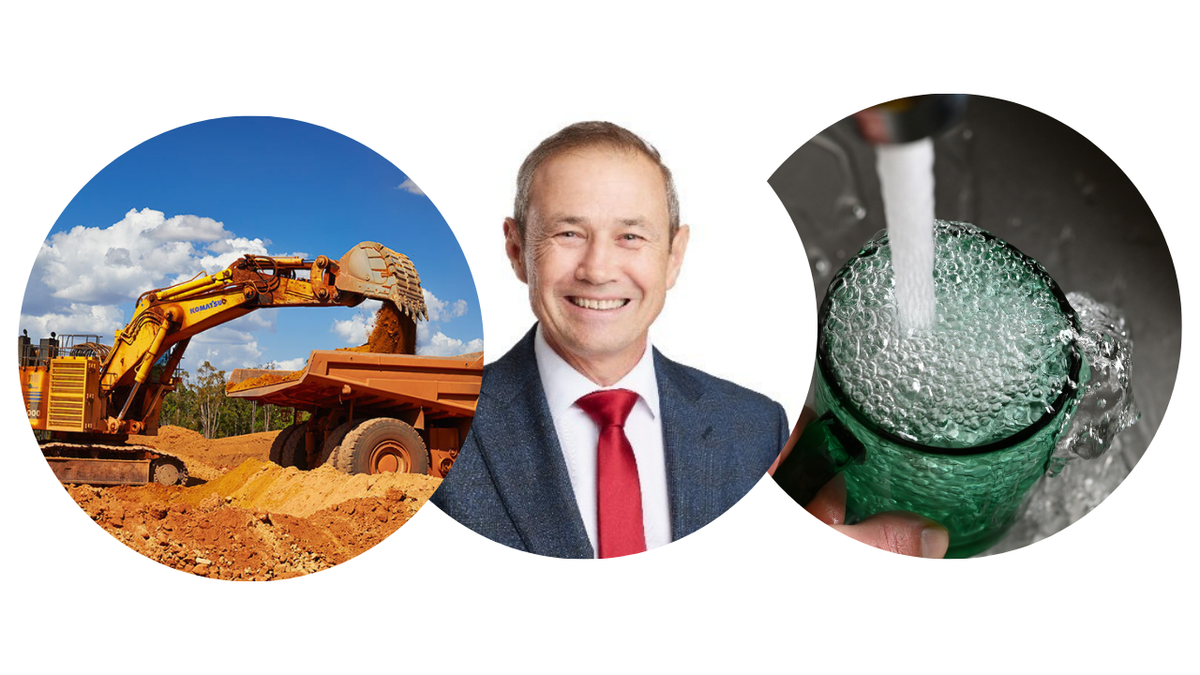Is Black Mountain's Kimberley dream fracking impossible?
Investors beware: after spending more than $40 million in the Canning Basin, the US-owned company's continued pursuit of remote gas appears to be throwing good money after bad.
Costly, complex, and with old technology, the 60-year-old alumina refinery that had employed 800 workers is unlikely to reopen.

Restarting Alcoa's alumina refinery in Kwinana, which closed in 2024, would be a big challenge and unlikely anytime soon, according to chief executive Bill Oplinger.
"It's high cost, it's complex, it has proximity to Perth, it's landlocked ... and it's old technology," Oplinger told the Melbourne Mining Club on Thursday.
"There are no indications that it would be restarted anytime soon."
Alcoa announced the closure of the 60-year-old refinery in January 2024. By June, processing of bauxite mined in the jarrah forest into alumina - the feedstock for aluminium smelters - had ceased.
Oplinger said production had been curtailed, but the plant could be restarted.
"However, with that said, the majority of the workforce has left, has gone on to better jobs," he said.
"We have found that when we restart facilities, we tend to underestimate how important the knowledge of that workforce is, and bringing back a workforce at Kwinana to restart, I think, would be a big challenge."
While Oplinger has ruled out a restart soon, a later restart would only have greater difficulty dealing with old technology and rehiring experienced workers.

Alcoa's benefit from saying the refinery is curtailed rather than closed is that it delays what will be an extraordinarily costly rehabilitation of the site.
In addition to the vast refinery, Alcoa has to manage 140 million cubic metres of toxic red mud tailings piled as high as 85m inland from the refinery, most of which have failed stability checks.
Even just curtailing the refinery is expensive, with Alcoa booking a $342 million charge in 2024 for water management at the site, according to Alcoa of Australia's 2024 filing to corporate regulator ASIC.
In early 2024, the refinery employed 780 workers. By the end of the year, this had dropped to about 250 to manage the closure process until the end of 2025.
After that, about 50 people will be employed at the site, which will still be used to import raw materials and export alumina.
In addition to jobs lost at Kwinana, Alcoa retrenched about 290 other employees in 2024.
In Australia, Alcoa owns the Pinjarra and Wagerup alumina refineries in WA and the bauxite mines that feed them, as well as a substantial share of an aluminium smelter in Portland, Victoria.
Oplinger, who visited Perth earlier in the week, said Australia was a good place for Alcoa to invest due to the availability of yof bausite and "a fantastic workforce, not inexpensive by any stretch, but a fantastic workforce."
"We have two of the lowest cost refineries in the world here in Western Australia," he said.
"Once those get back to better bauxite quality, which will happen over the next couple of years, they will be in the lowest 10 per cent of the cost curves in the world."
To achieve better bauxite grades, Alcoa needs approval to extend its Huntly mine that feeds the Pinjarra refinery northwards, past Serpentine Dam. It is due to soon issue the environmental review documents for public comment.
Oplinger was concerned about the price of energy in Australia.
"The piece that you have to get right is this balance of energy, and for us that means a domestic gas policy," he said.
"We will be big users of gas for a long time into the future."
Oplinger said Alcoa would look at renewable energy, but hydrogen was "not on the cards" as it was not close to being economic.
All the info and a bit of comment on WA energy, industry and climate every Friday